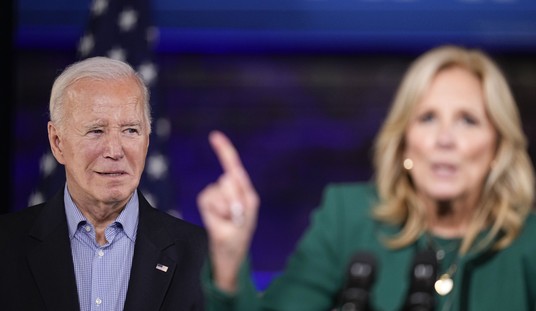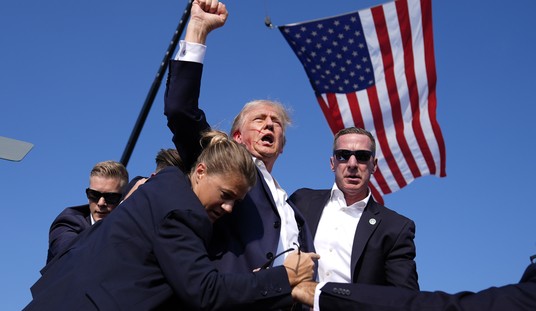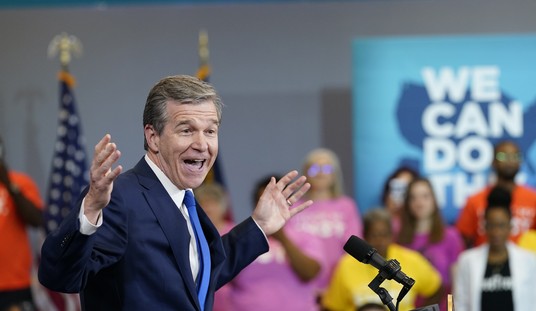You think there are problems now with the mainstream media? Just wait. Columbia University President Lee Bollinger joins the drumbeat of those proposing fixes that are guaranteed to make the MSM much, much worse — and he wants to do it with your tax dollars.
In a July 14th op-ed in the Wall Street Journal, Bollinger argues that the time has come to rescue the declining fortunes of newspapers and broadcast news with “enhanced public funding for journalism.” He envisions the future of American journalism as a “mixed system,” part public, part private. Otherwise, worries Bollinger, Americans might not get the news they need. Absent a pipeline of government money, he fears the Fourth Estate cannot continue to perform its fabled function as a watchdog, prowling the globe and speaking truth to power.
But wouldn’t public money compromise the independence and impair the integrity of American journalism? Not to worry, says Bollinger, who believes the mission in mixing public money with news reporting is simply “to get the balance right.” As examples of what he considers terrific balance, he points to American public universities, and the British taxpayer-supported BBC. That’s a hoot, because both are notorious hotbeds of leftist bias. Maybe he should check out the 2007 report that the BBC commissioned to look into itself — which concluded, as summarized in the UK by the Sunday Times — that the BBC “is an organization with a liberal, anti-American bias and an almost teen-age fascination with fashionable causes.” Or has Bollinger not worked around to reading any of the multiple private news sources that might have enlightened him on the rot at the BBC?
Behind Bollinger’s tender concern for the welfare of the Fourth Estate is a gross disregard for another institution vital to both the freedom and prosperity of American society: the free market. The most pernicious sentence in Bollinger’s article sounds weirdly akin to statements I heard in Russia 15 years ago from the dinosaur leftovers of the Soviet Communist Party, as they lamented the days when all truth was handed down by the Communist Party’s Central Committee newspaper, Pravda (this was during the brief window before the Russian government got back into the business of controlling the media).
Bollinger writes: “Trusting the market alone to provide all the news coverage we need would mean venturing into the unknown — a risky proposition with a vital public institution hanging in the balance.”
Yikes! Venturing into the unknown! Perhaps it is a truth undiscovered in the ivied turrets of Morningside Heights, but it is precisely in venturing into the unknown that private enterprise tends to excel. Markets give people the latitude to invent, take risks, pay for their own mistakes, and strive to make profits by producing things people will value. That’s why capitalist America has led the modern world in invention. Advances in technology have led to a shakeout in recent years in the handling of news coverage. (Anyone in pajamas with a laptop can now broadcast to the world.) The industry is now grappling with the question of how to make money in a far more fast-paced, multi-tiered competitive scene than anything we knew in the days of three TV channels, a couple of major newspapers, and no internet. But if the government simply refrains from sticking its clammy hands any deeper into the market, it’s a very good bet that people will devise ways to profit and prosper by competing to deliver the news people need (and want). Competition will do far more than any Washington media czar to preserve the institution of a healthy free press (or internet, or what-have-you). Fox News seems to be doing all right, via the amazing feat of recognizing that there’s a national audience for coverage that does not automatically tilt to the left.
The way America pulled itself out of the 19th century era of yellow journalism, when coverage was for sale, was that some publishers realized they could make money by offering the public reliable reporting. That was the origin, among other things, of the Wall Street Journal, back in 1882. The aim was to satisfy customers who needed honest news of Wall Street. It was left to the paying customers (not to the presidents of Ivy League schools, or the Federal Department of Lofty Bureaucrats) to judge whether the product satisfied their needs. They signaled their preferences by deciding — voluntarily — to pay for the newspaper, or not.
If, as Bollinger suggests, the provision of adequate news coverage cannot be entrusted to the market, then what about such vital matters as shelter and medical care? Hmmm… as it happens, government has increasingly been horning in on these matters as well. That’s how we got the subprime mortgage crisis, courtesy of FANNIE MAE and affiliates. Soon the American public will begin its full-body encounter with ObamaCare. Does America really need to spend yet more tax dollars so government can subsidize similar experiments in journalism? Bollinger warns us against trusting the market; but he wishes us to trust that government would pay the pipers of the press, but resist the urge to call the tune.
The worst damage would not be the money spent, but the bias that would be cemented right into the institution of the press. In too many places, there’s quite enough bias already, without the government arranging — in the name of supporting the “free” press — to purchase yet more of the same.
If it’s perfection in news coverage that Bollinger is after, then all avenues end in doom. Who decides what the perfect balance, breadth, and depth should be? Lee Bollinger?
As with most areas of human endeavor, no ultimate single authority in journalism could possibly ensure that all vital stories are always fully covered, without fear or favor. News is a messy, sprawling business that requires endless judgments about what’s happening, often before much of it has actually happened. If you depend on the market, there will always be outlets that cater noticeably to the preferences and worldviews of their established customers. I’d guess that the New York Times and the New York Post choose some of their coverage to appeal to different crowds, because they are well aware of what their customers want. The important point here is that the customers, the readers, are the arbiters — not the government. There is competition, and you, the little guy, get to decide who deserves your dollars for providing news. If you depend on the government, then ultimately it is someone in government who gets to decide which news outlets will be sustained with your money, and which will not — and who gets how much. Under the current administration, for instance, would anyone care to guess whether the public dole would be handed out more liberally to MSNBC or to Fox News? To the editorial pages of the New York Times versus the Wall Street Journal? (Lee Bollinger’s media op-ed in today’s Journal notwithstanding).
Bollinger wraps up his piece by saying that to him, a “key priority” is “to strengthen our public broadcasting in the global arena.” As examples of what he’d like this public broadcasting to compete with, he cites — are you ready for it? — the BBC (biased, see above), China’s CCTV (need I say more?) and Qatar’s Al Jazeera (you see the problem). It bothers him that the U.S. government’s Voice of America (he doesn’t mention that VOA has developed its own anti-American slant) is not allowed to broadcast inside the U.S. He wants to revise that, and — courtesy of the public purse — consolidate such exercises with an augmented NPR and PBS, to produce an “American World Service” which he assures us will, “with full journalistic independence,” proceed to “provide the news we need.”
Iran’s President Mahmoud Ahmadinejad, whom Bollinger hosted as a speaker at a Columbia World Leaders Forum in 2007, could no doubt advise Bollinger further on the advantages of entrusting government with ensuring that people get exactly the news they need. Iran’s regime has invested heavily in that sort of thing. Not that I think Bollinger aspires to replicate the Fars News Agency. But that is where his logic leads. If there is now to be a renewed cry in Washington for government to set up a giant new media conglomerate, broadcasting state-selected news across the U.S.A. and running welfare services for chosen bastions of the “private” and “independent” press, then let’s at least spare ourselves the horror of creating an entire new agency to enthrone and entrench a Washington media czar. I have a better idea, given the outreach skills this visionary experiment in communications would require. Just turn the whole project over to NASA.









Join the conversation as a VIP Member